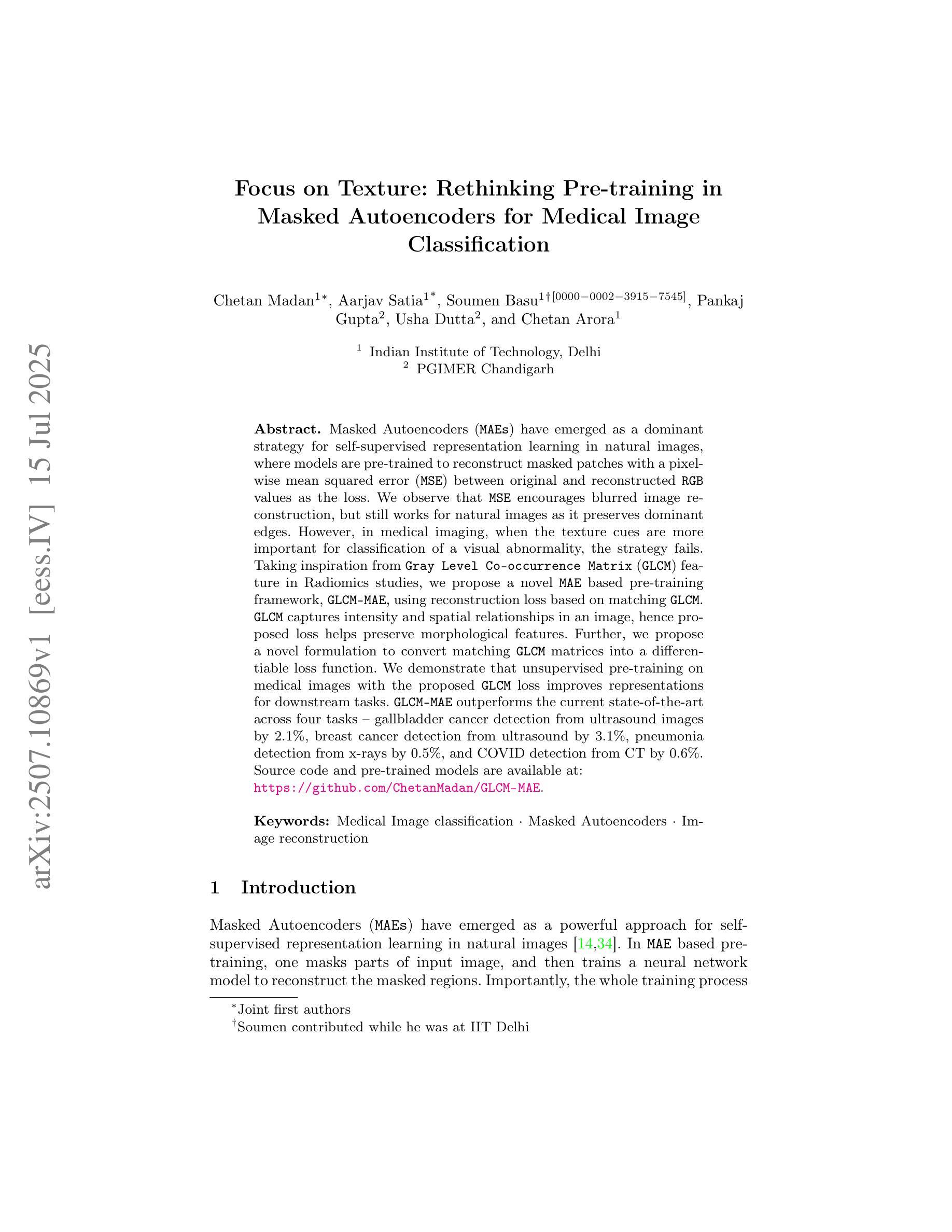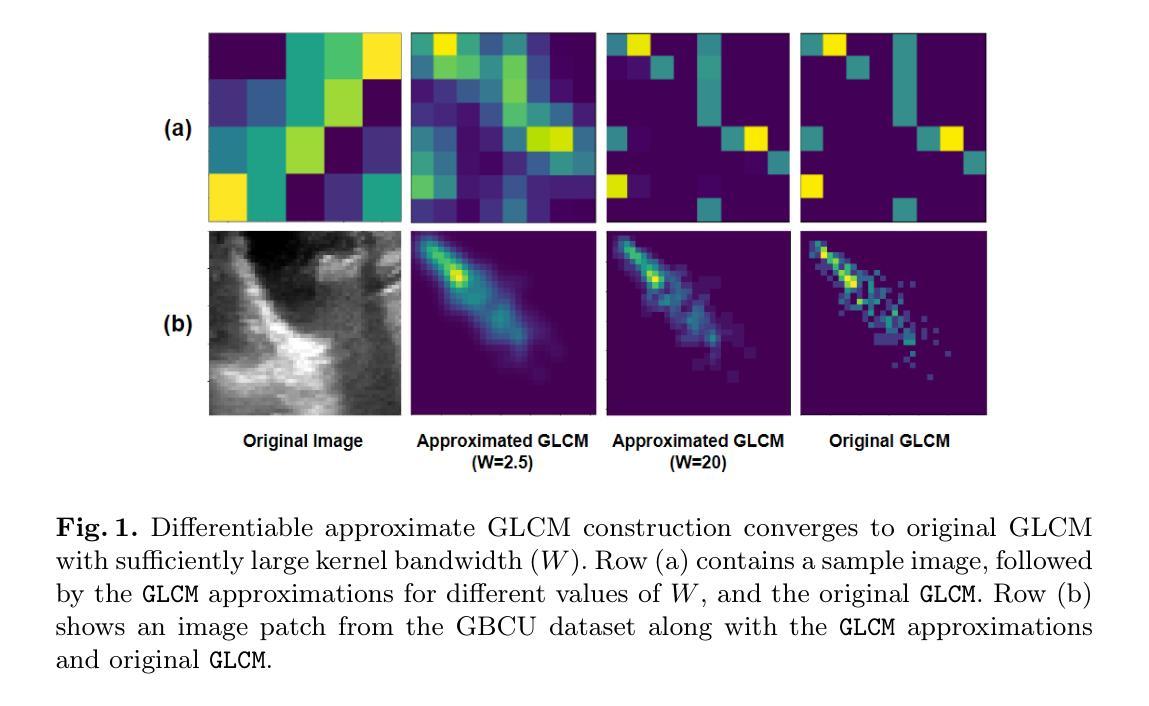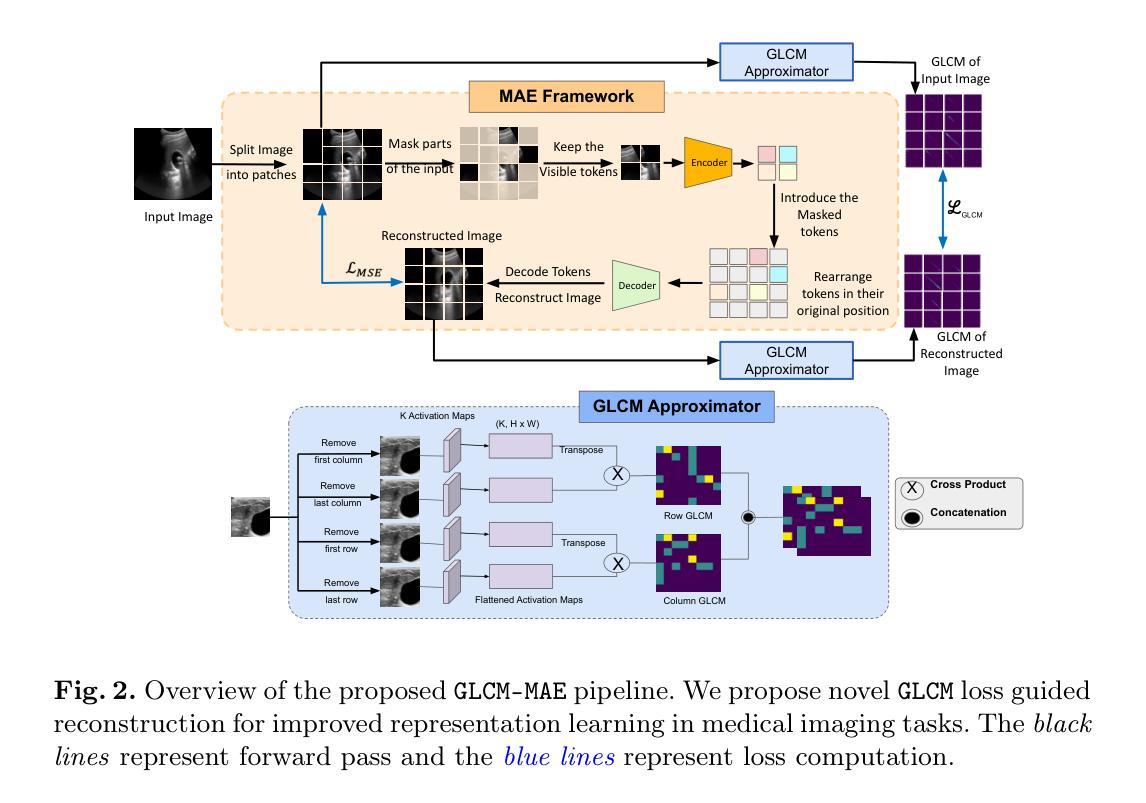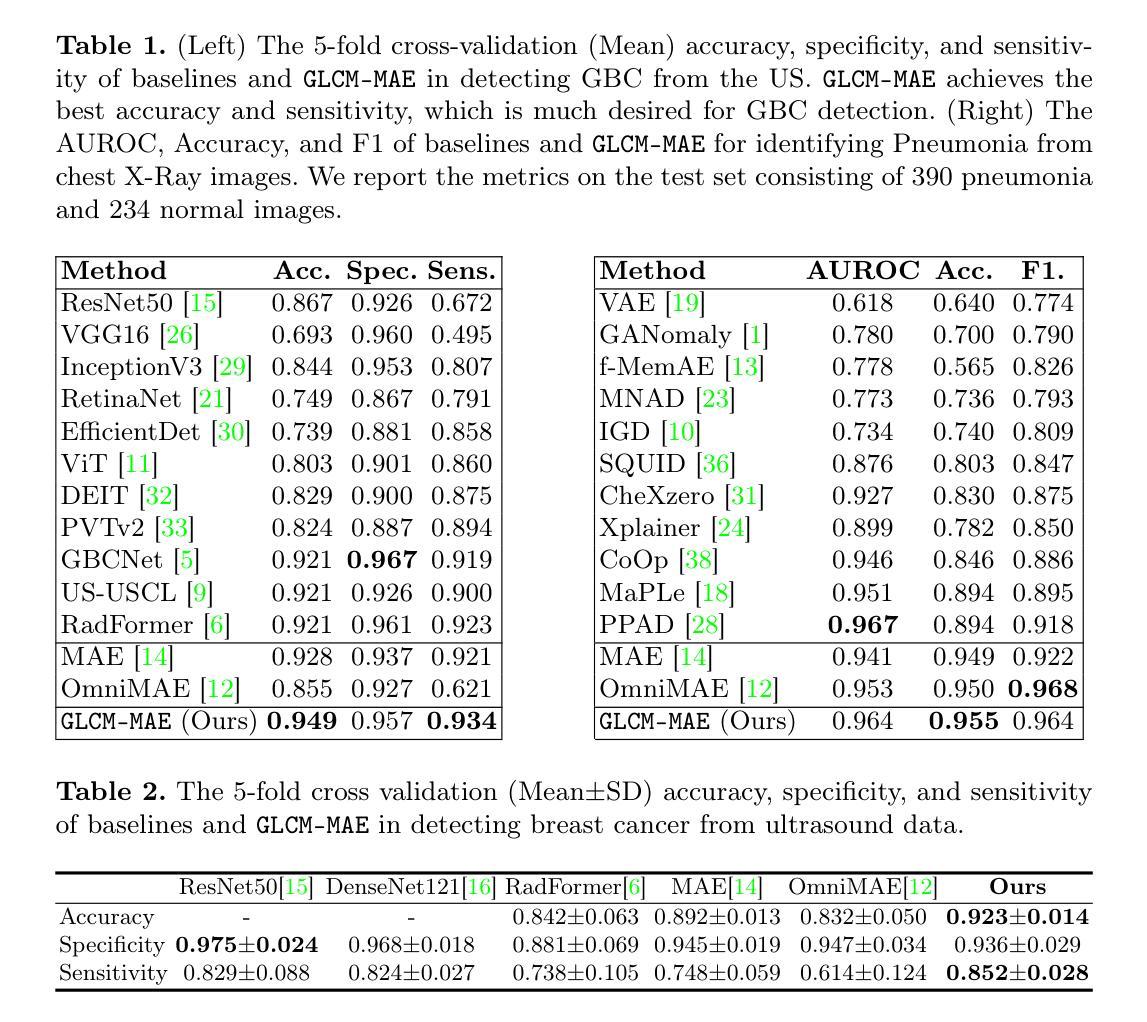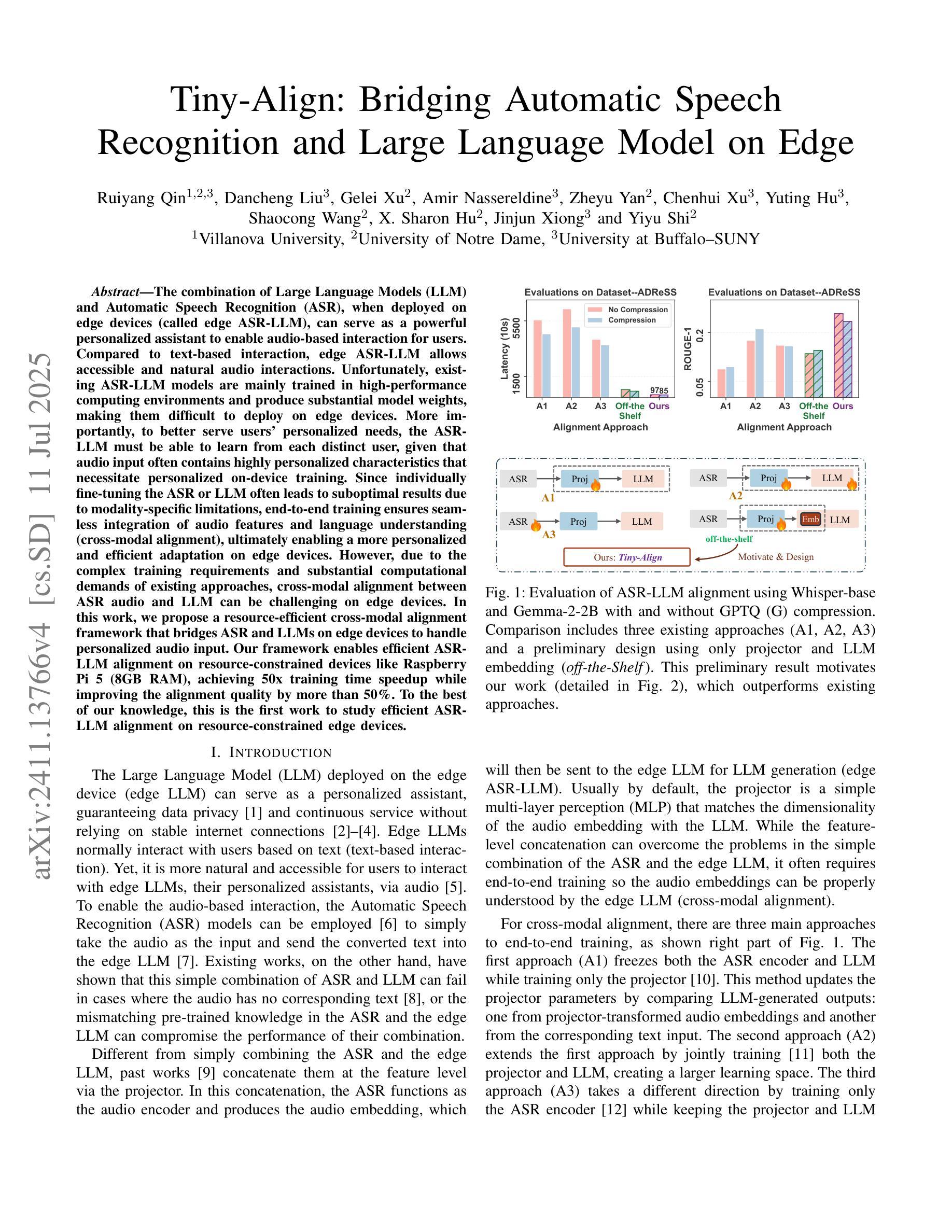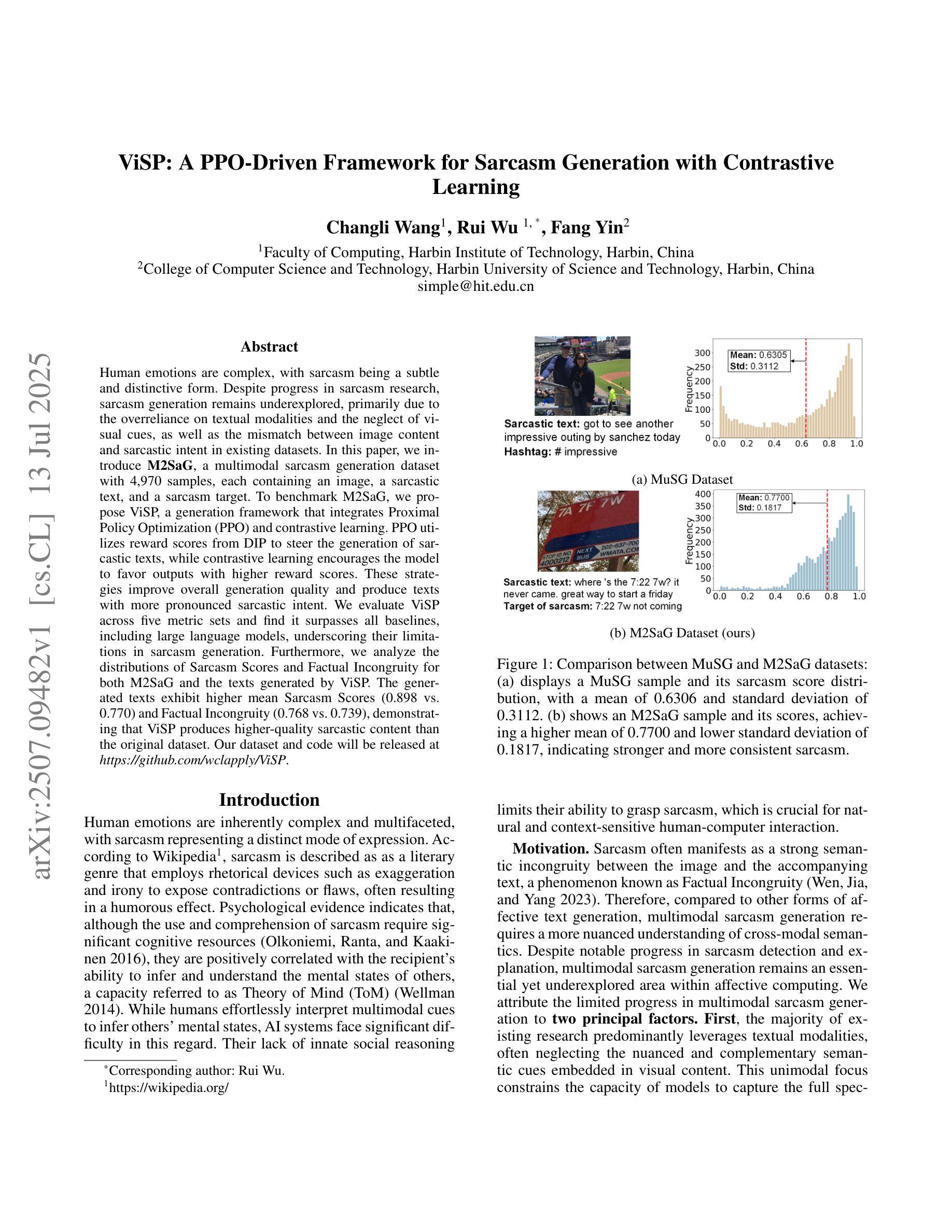⚠️ 以下所有内容总结都来自于 大语言模型的能力,如有错误,仅供参考,谨慎使用
🔴 请注意:千万不要用于严肃的学术场景,只能用于论文阅读前的初筛!
💗 如果您觉得我们的项目对您有帮助 ChatPaperFree ,还请您给我们一些鼓励!⭐️ HuggingFace免费体验
2025-07-17 更新
Focus on Texture: Rethinking Pre-training in Masked Autoencoders for Medical Image Classification
Authors:Chetan Madan, Aarjav Satia, Soumen Basu, Pankaj Gupta, Usha Dutta, Chetan Arora
Masked Autoencoders (MAEs) have emerged as a dominant strategy for self-supervised representation learning in natural images, where models are pre-trained to reconstruct masked patches with a pixel-wise mean squared error (MSE) between original and reconstructed RGB values as the loss. We observe that MSE encourages blurred image re-construction, but still works for natural images as it preserves dominant edges. However, in medical imaging, when the texture cues are more important for classification of a visual abnormality, the strategy fails. Taking inspiration from Gray Level Co-occurrence Matrix (GLCM) feature in Radiomics studies, we propose a novel MAE based pre-training framework, GLCM-MAE, using reconstruction loss based on matching GLCM. GLCM captures intensity and spatial relationships in an image, hence proposed loss helps preserve morphological features. Further, we propose a novel formulation to convert matching GLCM matrices into a differentiable loss function. We demonstrate that unsupervised pre-training on medical images with the proposed GLCM loss improves representations for downstream tasks. GLCM-MAE outperforms the current state-of-the-art across four tasks - gallbladder cancer detection from ultrasound images by 2.1%, breast cancer detection from ultrasound by 3.1%, pneumonia detection from x-rays by 0.5%, and COVID detection from CT by 0.6%. Source code and pre-trained models are available at: https://github.com/ChetanMadan/GLCM-MAE.
基于像素级的掩码自动编码器(MAEs)已成为在自然图像中进行自监督表示学习的主流策略。在这种策略中,模型会进行预训练以重建被掩码的区块,并使用原始和重建RGB值之间的像素级均方误差(MSE)作为损失函数。我们发现MSE鼓励模糊图像的重建,但在自然图像中仍然有效,因为它保留了主要的边缘。然而,在医学成像中,当纹理线索对于视觉异常的分类更为重要时,该策略会失效。我们从放射学研究中灰度共生矩阵(GLCM)特征中汲取灵感,提出了一种基于MAE的新预训练框架GLCM-MAE,该框架使用基于匹配GLCM的重建损失。GLCM能够捕捉图像中的强度和空间关系,因此所提出的损失有助于保留形态特征。此外,我们还提出了一种新型公式将匹配的GLCM矩阵转化为可微分的损失函数。我们证明了使用所提出GLCM损失对医学图像进行无监督预训练能够提高下游任务的表示能力。在四种任务上,GLCM-MAE的表现均超过了当前最先进的技术:从超声图像中检测胆囊癌提高了2.1%,从超声图像中检测乳腺癌提高了3.1%,从X射线图像中检测肺炎提高了0.5%,从CT图像中检测COVID提高了0.6%。相关源代码和预训练模型可在以下网址找到:https://github.com/ChetanMadan/GLCM-MAE。
论文及项目相关链接
PDF To appear at MICCAI 2025
摘要
基于灰度共生矩阵(GLCM)特征,提出一种新型MAE预训练框架GLCM-MAE,采用基于GLCM匹配的重建损失,改善医疗图像的无监督预训练效果。GLCM捕捉图像中的强度和空间关系,因此提出的损失有助于保留形态特征。此外,我们还提出了一种新的公式,将匹配的GLCM矩阵转化为可微分的损失函数。实验显示,在四个任务中,使用GLCM损失的预训练效果优于当前最先进技术,包括胆囊癌超声检测提升2.1%,乳腺癌超声检测提升3.1%,肺炎X光检测提升0.5%,以及新冠肺炎CT检测提升0.6%。
关键见解
- MAE在自然图像中的自监督表示学习表现出色,但在医疗图像中因纹理信息的重要性而表现不佳。
- 提出一种新型预训练框架GLCM-MAE,结合灰度共生矩阵(GLCM)特征,旨在改进医疗图像的无监督学习。
- GLCM能够捕捉图像中的强度和空间关系,因此新的预训练策略可以更好地保留形态特征。
- 将匹配的GLCM矩阵转化为可微分的损失函数,这一创新公式增强了模型的性能。
- 在四个不同医疗图像任务中,GLCM-MAE均表现出超越当前最先进技术的性能。
- 公开了源代码和预训练模型,便于其他研究者使用和改进。
- GLCM-MAE框架可能为未来医疗图像分析和诊断提供新的方向。
点此查看论文截图
